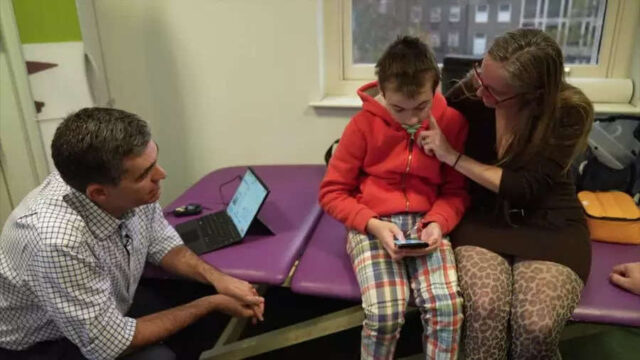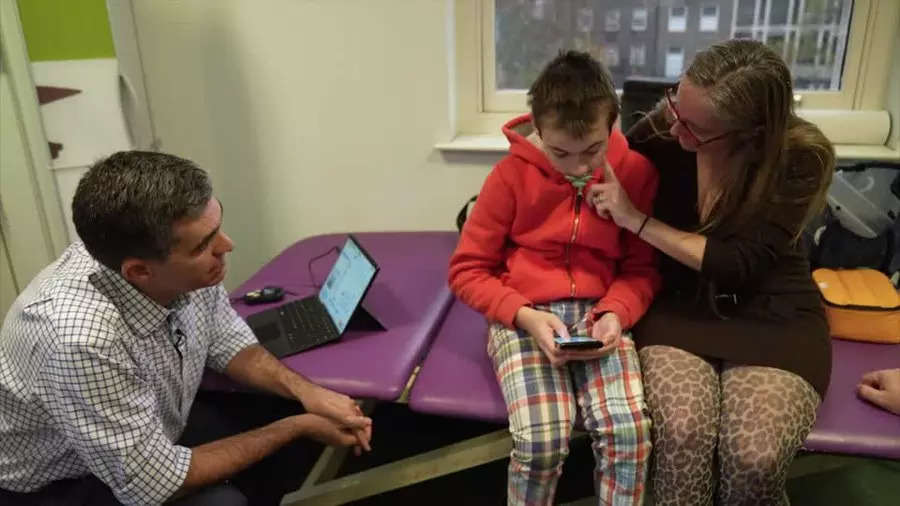The new neurostimulator device, which sends electrical signals deep into the brain, has reduced Oran’s daytime seizures by an impressive 80%. Oran’s mother, Justine, told the BBC that the surgery has dramatically improved his quality of life, making him “happier” and more engaged.
The surgery, which lasted approximately eight hours, was part of a trial at Great Ormond Street Hospital in partnership with University College London, King’s College Hospital, and Oxford University. The device, a Picostim neurotransmitter made by UK company Amber Therapeutics, aims to block or disrupt abnormal signals in the brain that trigger epilepsy seizures.
According to Martin Tisdall, consultant paediatric neurosurgeon leading the team, the new device is particularly useful for children as it is implanted in the skull rather than the chest, reducing potential complications. The trial will also include three more children with Lennox-Gastaut syndrome who will be fitted with the deep brain neurostimulator.
Martin Tisdall told the BBC, “This study is hopefully going to allow us to identify whether deep brain stimulation is an effective treatment for this severe type of epilepsy and is also looking at a new type of device, which is particularly useful in children because the implant is in the skull and not in the chest.
“We hope this will reduce the potential complications.”
Improved Quality of Life with Epilepsy Device
Following a month of recovery, Oran’s neurostimulator was activated. The device, which is painless and wirelessly rechargeable through headphones, has led to a significant improvement in Oran’s condition. His mother, Justine, reported that Oran is now more alert, experiencing no drop seizures during the day, and has shorter, less severe night-time seizures. Martin Tisdall, the consultant paediatric neurosurgeon leading the team, expressed delight at the tremendous benefit the treatment has brought to Oran and his family, dramatically improving his seizures and quality of life.
Future Prospects and Trial Expansion using Epilepsy Device
The success of Oran’s treatment marks a significant advancement in epilepsy care. The Picostim neurostimulator, made by UK company Amber Therapeutics, sits under Oran’s skull, sending electrical signals deep into his brain to reduce seizures. The trial, known as the Children’s Adaptive Deep Brain Stimulation for Epilepsy Trial (CADET), will now expand to include three more patients with Lennox-Gastaut syndrome, with a goal of recruiting a total of 22 participants. The next phase of the trial aims to make the neurostimulator responsive to real-time changes in brain activity, potentially blocking seizures as they are about to occur.
Significance of the Advancement of the Epilepsy device
Tisdall emphasized the significance of this advancement, stating that deep brain stimulation brings hope for stopping epileptic seizures in patients with limited effective treatment options. He expressed excitement about building the evidence base for deep brain stimulation in treating pediatric epilepsy, hoping that it will become a standard treatment in the future.
The success of Oran’s treatment has not only brought hope to his family but also to many others affected by severe epilepsy. While the treatment is not a cure, it represents a significant step forward in epilepsy management. Moreover, the Picostim neurostimulator holds promise for treating other neurological disorders, with potential applications already seen in patients with Parkinson’s disease.
(With inputs from Agencies)






































